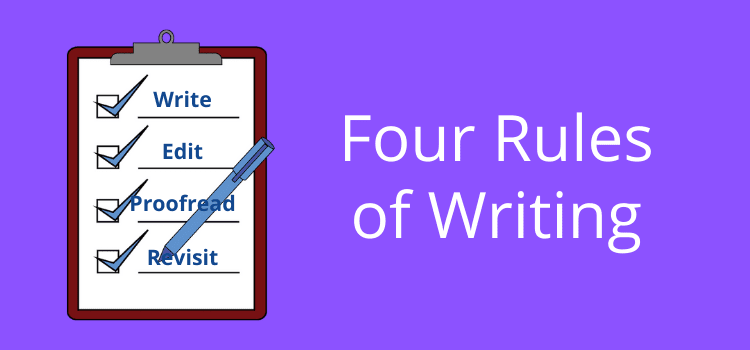This is a sponsored advertorial post. The opinions expressed are those of the author and do not necessarily reflect the views of Just Publishing Advice.

Most applications for admission to undergraduate schools and graduate programs combine a tell-us-about-yourself form with a mandatory personal statement.
This essay gives you the opportunity to stand out from other candidates in a highly competitive pool of applicants.
It should illuminate your intellectual promise, your unique background and abilities, and how you’ve propelled yourself through adversity to become the person you are.
What is a personal statement?
The personal statement speaks for your aptitudes, your respect for the rigors of academics, and your willingness to work hard toward the objectives of an advanced curriculum.
What you say in this essay can make or break your chances of admission.
In fact, the personal essay often becomes the most important part of the materials you submit in your quest for entry into an academic environment.
As you approach this important step on the path toward your chosen major or graduate discipline, keep these mandates and warnings in mind.
Objectives to Fulfill:
Read and follow the directions, making special note of those that regulate page limitations or word counts.
Don’t curb yourself with a too-long personal statement, or one that’s so short; it fails to take advantage of this critical opportunity to sell yourself. You don’t want to look like someone who can’t follow directions, let alone someone who lacks enough self-esteem and self-awareness to make a good presentation of personal value.
Answer anything you’re required to answer.
Again, follow the rules. If an institution asks you some specific questions, it’s because the school or curriculum wants to evaluate all candidates in light of a defined list of attributes or qualifications. Don’t let an ill-defined answer sell you short.
Create a thesis statement and use it to present a well-rounded, cohesive picture of yourself. Return to it at the end of your statement to establish a sense of closure.
Remember what your Freshman Composition teacher taught you about introducing your subject matter at the beginning of the paper, conveying significant points during the body of the essay, and returning to your original statement of purpose at the end with closing proof that you made the points you announced at the beginning. This essay structure works for more than an English class.
Develop a strong opening paragraph that grabs and holds the reader’s attention.
The opening paragraph of your statement takes a critical role in getting reviewers to notice you. Remember that they’re reading a large batch of essays, not just yours. Avoid blending in as just another voice in a crowd.
Write in an active, confident tone.
Passive voice (“It was found that”) sounds weak and indirect. Speak with strong confidence, and use active vigorous verbs. Don’t talk about yourself in the third person. That makes your statement sound as if someone else wrote it for you. Of course, too much of a good thing is not recommended either. Avoid exaggerated or fulsome language that’s more appropriate in a late-night “call now” TV commercial.
Speak honestly.
Don’t exaggerate or take liberties with the truth of your background. The reviewer wants to get to know you, not some idealized superhero version of you. Any attempts to mislead or inflate your accomplishments will backfire.
Research each school so you can tailor your response to any questions about why you’re interested in attending it. Personalize your statement for each school and academic program to which you apply.
You may think you can save time and effort with a single personal statement that you recycle for each application. That generic approach fails to take into consideration the uniqueness of each school.
Reviewers want to see your passion for their school and their program, not your generalized ambition to continue your education.
If you repurpose even part of a personal statement for more than one college or university, research each school sufficiently so that you can include some targeted details in each essay, demonstrating your specific desire to attend.
Use your life, your intellectual pursuits, and your engagement with mentors to show how you’ve become who you are.
Base the points you make about your value as a prospective student on your real achievements. Show how your history has made you the person you are.
Describe attributes and accomplishments that help distinguish you from other applicants.
Your overarching goal in writing this personal statement lies in standing out as distinct from and more appealing than other candidates in a pool of applicants. If your background offers little that’s truly diverse, find compelling language in which to describe what you have accomplished.
Use examples that narrate your unique potential and achievements and illustrate your commitment to the discipline you plan to study.
Tell a story. Use interesting details to make your statement truly personal and to make yourself stand out from other applicants. Generic stories don’t show who you are or establish your differentiated diversity.
Don’t descend into a blizzard of details, but use specifics to show your uniqueness and attest to your value. Everyone finds a good story enticing to read. Academic reviewers are no different.
Show what you’ve learned that has fostered your interest in this school and this field.
Tie your adult background and your achievements to your desire to study in a specific field or learn from a specific faculty.
Leave time to review your statement and show it to trusted peers or professors.
Perhaps most importantly of all, edit for clarity, proper grammar, and a strong flow of information without abrupt transition. Proofread for typographical errors, improper punctuation, spacing and capitalization mistakes, missing or repeated words, and anything else that detracts from a polished presentation.
Enlist the reviewing assistance of friends and instructors whose insights and sharp eyes you trust to help you make a flawless presentation of your best attributes.
13 Things to Avoid:
1. Don’t discuss controversial subjects such as politics and religion.
Avoid stirring up controversy. Unless you’re applying to divinity school, or to an institution that’s founded on and run according to religious principles, your faith is irrelevant to your statement. Likewise, your political views make no positive contribution to your chances of admission because they may distract the reviewer.
2. Don’t try to sound like the ideal candidate.
Be yourself. You don’t have to be perfect to gain admission to the school of your dreams. Attempting to portray yourself as a cross between Mother Teresa and Albert Einstein, or Mark Cuban and Mark Zuckerberg, will raise eyebrows and cast doubts on the validity of what you say.
3. Don’t harp on one point, especially if it’s trivial.
Your statement should present your strong points, not dwell on one small accomplishment or overemphasize your ability to overcome one misstep.
4. Don’t use clichés.
Avoid trivial language that does nothing to distinguish you from other applicants. If you’re applying to medical school, you’re assumed to want to help others. If you are applying to law school, your likeness for justice will not make you stand out.
5. Don’t talk about how entering this program constitutes the fulfillment of a life-long dream.
That “always wanted to” or “dreamed since childhood of” expression of desire does nothing to make you stand out. The reviewer doesn’t care that you wore a toy stethoscope throughout your childhood or talked your mother into making you a kid-sized judicial robe. Use your personal statement to speak to the person you’ve become, and how that person wants to continue to grow academically.
6. Don’t use abstract words that offer no meaningful insights, such as “rewarding” or “challenging.”
Get personal. Be specific. Instead of saying something was rewarding, show how it offered you a valuable experience. The show, don’t tell. Showing uses examples and stories.
7. Don’t speak negatively about yourself.
Your personal statement isn’t a place for self-doubt or self-disparagement. Why should the reviewer make a place for you in a demanding school if you imply or say you’re not worthy of taking that place?
8. Don’t turn in a statement that you haven’t edited and proofread thoroughly.
Sloppiness, bad grammar or punctuation, typographical errors: Any and all of these flaws can relegate an otherwise stellar personal statement to the reject pile.
9. Don’t attempt humor or cleverness.
Creativity is fine. Trying to be funny or cute can clash with the reviewer’s sense of humor. Just because you think a joke is funny doesn’t mean the rest of the world shares your opinion. Save the “cutesiness” for your personal life, not for your paper.
10. Don’t reiterate information you’ve already provided on an application form unless it helps you provide fresh insight or make a specific, important point.
Your personal statement must fit within a word- and page-count limitations. Don’t waste precious verbiage restating what your application makes obvious unless the restatement fits into a specifically articulated point that illuminates your unique value.
11. Don’t use hyper-formal or unduly informal language.
When people attempt to speak in a formal tone, they often strangle their language with false formalisms (“utilize” for “use,” for example). Conversely, transforming your paper into a personal conversation also mistakes the linguistic tone that this critical essay requires. Strike a balance between rigid formality and “yo, whassup.”
12. Don’t make claims you can’t substantiate, especially about your potential, characteristics, or capabilities.
Avoid calling yourself “the best” at something, unless you have statistics to back up the claim.
13 Don’t mention accomplishments from childhood.
You’re an adult. Use your personal statement to establish the value of what you’ve learned and how you’ve grown as an adult. The reviewer isn’t interested in childhood dreams.
This guide to writing a winning custom personal statement can help you find the right words to convey your unique promise, experience, and abilities. Remember to let yourself shine—and always read the directions!



